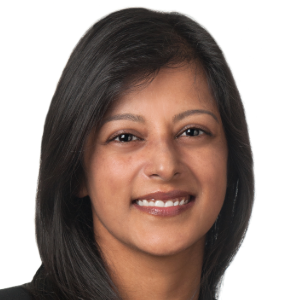
April 2024 Newsletter

April 2024 Newsletter

Faculty Profile
Sunandana Chandra, MD, MS, is an associate professor of Medicine in the Division of Hematology and Oncology and member of the Robert H. Lurie Comprehensive Cancer Center of Northwestern University. Her clinical and research interests include the development of robust clinical trials and studying novel biomarkers that may be used as prognostic and predictive tools for managing melanoma and other advanced skin cancers, as well as cancer of unknown primary.
What are your research interests? How did you become interested in this area of research?
I became interested in cancer as an undergraduate when I took a course in cancer biology during my senior year. I spent some time as an NIH Intramural Research Training Award (IRTA) fellow during and after my undergraduate years which further solidified my interest in cancer research. After medical school at Michigan State University College of Human Medicine, I matriculated into an Internal Medicine residency program at Case Western knowing that path would then allow me to pursue a career in Hematology and Oncology. After three years in an Internal Medicine residency program, I entered into a three-year fellowship in Hematology and Oncology at NYU, which I completed ten years ago. I am now a medical oncology attending physician at the Robert H. Lurie Comprehensive Cancer Center and an associate professor of Medicine at Northwestern University. As a medical oncologist, I focus on advanced cutaneous malignancies, including melanoma, Merkel cell carcinoma, cutaneous squamous cell carcinoma and basal cell carcinoma.
What types of collaborations are you engaged in across campus (and beyond)?
The treatment of advanced melanoma often requires a multidisciplinary approach. I work very closely with my colleagues in Surgical Oncology, Radiation Oncology, Dermatology, Ocular Oncology, Pathology and Radiology. In addition, we try to forge active collaborations with our basic science colleagues across the campus to try to facilitate bench-to-bedside research, or vice versa, in which patients’ tumor and blood specimens are collected (with their permission) to better understand the effects of the cancer, the drug or a toxicity in the patient. In addition to institutional collaborations, I also have close relationships with colleagues across the country in which we partner to develop and implement multi-institutional clinical trials that can help patients from around the United States.
What are the newest advances in your field that you are most excited about?
Melanoma has been on the forefront of the field of immunotherapy. Melanoma is very immunogenic, and it can be exquisitely sensitive to the actions of a person’s immune system in trying to control the melanoma. Immunotherapy drugs that target the body’s immune cells, specifically the T-cells, have revolutionized how we treat melanoma. When used in the advanced setting in melanoma, these drugs have made a tremendous impact on patients’ survival. As of about two months ago, for the first time ever in solid tumors, tumor-infiltrating lymphocytes, or TILs, are now approved to treat advanced melanoma. TIL therapy is a type of cellular therapy that is a result of collecting T-cells from a patient’s tumor, expanding the T-cells ex vivo, and then infusing the T-cells back into the patient to elicit an anti-tumor immune response.
Who are your mentors?
Over the years, I have had many mentors I look to for inspiration and guidance. These mentors have been scientists in the laboratory, such as when I first entered this field, and mentors who helped me to hone my interest in Internal Medicine, specifically in Hematology and Oncology during my medical training in medical school, residency and fellowship. Finally, as a practicing medical oncologist, a clinical investigator, and faculty in the medical school, I have had numerous colleagues to whom I go to for mentorship and guidance as I navigate my career in academic medicine.
What advice would you give to someone who is considering a career in academic medicine?
I think academic medicine can be a very fulfilling career. In academia, there is an opportunity to drive research and innovation and, in oncology specifically, to be involved in innovative clinical trials that allows us to offer the most state of the art and novel therapies to our patients. In addition, it allows us to help to educate and train future doctors and to be involved in helping to develop national and international guidelines on the management of patients with advanced disease. No one day or week is the same in the life of an academic physician, and the variability is what makes the career exciting and fulfilling.